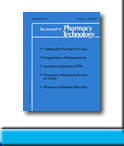 |
 |
INHALED CORTICOSTEROIDS
IN YOUNG ASTHMATIC CHILDREN: ASSOCIATED WITH HYPERCALCIURIA
Lea Bentur, Haim Bibi, and Yedidia Bentur
To request full article click here.
INTRODUCTION: The use of inhaled corticosteroids (ICS) via infant aerochamber in young, asthmatic children is increasing. However, concern has been raised about its long-term impact. Hypercalciuria is a known adverse effect of systemic corticosteroids.
OBJECTIVE: To determine whether ICS-induced hypercalciuria occurs in young, asthmatic children.
SETTING: Two outpatient clinics.
METHODS: Urinary calcium/creatinine ratio (UCa/Cr) was determined in 32 asthmatic children (age 6–36 mo) who were receiving inhaled budesonide or beclomethasone 200–600 µg/d for two to three months. A control group of asthmatic children within the same age range (n = 23) who did not receive ICS was included. None of the children were receiving oral corticosteroids, diuretics, antibiotics, or theophylline.
STATISTICS: Student's t-test and c² analysis.
RESULTS: The treated and control groups were similar with regard to age and male/female ratio. Mean ± SD UCa/Cr was significantly higher in the asthmatic children receiving ICS (0.23 ± 0.19 vs. 0.09 ± 0.07, respectively; p = 0.002). Fourteen (43.75%) of the treated patients had hypercalciuria (UCa/Cr >0.2) compared with only one (4.35%) in the control group (p = 0.002). Renal ultrasonography failed to demonstrate nephrocalcinosis in eight of the treated hypercalciuric patients.
CONCLUSIONS: Treatment of young, asthmatic children with ICS may be associated with hypercalciuria. More studies are needed to evaluate the clinical significance of this finding.
J Pharm Technol 2000;16:151-4.
To request full article click here.
|
|
|
||
|

